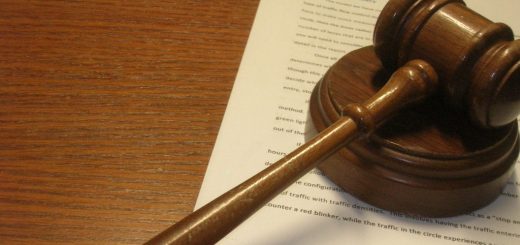Kiobel v. Royal Dutch Petroleum Co.: To Expand or Limit Corporate Personality, the Alien Tort Statute and Extraterritorial Jurisdiction
At the moment, attention is focused on the United States Supreme Court’s (SCOTUS) controversial oral hearings on the Patient Protection and Affordable Care Act cases. However, arguments for a more important case for international lawyers took place on 28 February 2012.
On that date, SCOTUS Justices heard arguments in Kiobel v Royal Dutch Petroleum, 621 F.3d 11. To highlight the importance of this case, between 17 June 2011 and 17 February 2012, 40 amici curiae briefs were filed by third parties, including the German, British, and Dutch governments (in favour of the defendants), the United Nations Nigh Commissioner for Human Rights (in favour of the plaintiffs), as well as present and former United States government officials such as senators, ambassadors, and counter-terrorism officials. The decision promises to be a key moment for the future human rights litigation in the United States, with significant implications for the international community.
What is it all about?
In Kiobel v Royal Dutch Petroleum Co., SCOTUS is looking at two major issues.
The first issue is whether corporate civil tort liability under the Alien Tort Statute 28 U.S.C. § 1350 (“ATS”), is a question of merits or jurisdiction.
The second, and more important, issue is whether corporations are immune from tort liability for international violations such as torture, extrajudicial executions, genocide, or, on the other hand, corporations may be sued as a private party defendant under the ATS.
SCOTUS’ decision in this case may provide a definite answer on whether a corporation has individual personality, and potentially expand the scope of claims under the ATS. Conversely, the decision may severely limit ATS claims. Based upon the questions asked by the SCOTUS justices, it may appear the latter scenario alone is the likely to play out.
Alien Torts Act: 200 Years Young
As Angela Walker writes, the 200-year-old statute “has only recently been revived as a way of holding corporations liable for human rights violations committed overseas.”
Walker highlights that it was in 1980 that the United States Second Circuit Court in Filártiga v. Peña-Irala, 630 F. 2d 876 – Court of Appeals (Second Cir.) established the ATS as a tool to remedy international law violations committed by government officials.
Then, in 2002, the United States’ Court of Appeals 9th Circuit Court in Doe I v Unocal Corp., held that a corporation could be found liable for violating international law. After failing to have the case dismissed, Unocal ended up agreeing to a settlement with the plaintiffs rather than going to trial on case merits. Since that decision, United States courts have established ‘aiding and abetting’ human rights violations under the ATS. While SCOTUS has established a test for actionable torts under the ATS, it has yet to confirm corporate ‘aiding and abetting’ liability under the ATS. Creating ambiguity, in Sosa v Alvarez-Machain et al., 542 US 692 (Supreme Court 2004), SCOTUS explicitly declined to adopt specific criteria to determine when a court has jurisdiction over an ATS claim.
Instead, SCOTUS adopted a flexible test based on the four principles of universality, obligatory nature, specificity, and prudential considerations. In somewhat restricting claims, SCOTUS set out grounds for rejecting a claim: The federal courts should not recognize private claims under federal common law for violations of any international law norm with less definite content and acceptance among civilized nations than the historical paradigms familiar when §1350 was enacted.
Facts
This brings us to Kiobel v Royal Dutch Petroleum.
In this case, the plaintiffs are Nigerian citizens who claim that Dutch, British, and Nigerian corporations “aided and abetted” the Nigerian government in violating their human rights during the course of oil exploration efforts in the 1990s.
Because of the ATS, the plaintiffs brought their claim in the United States, although neither the plaintiffs nor the defendants are based in the United States and the alleged violations were not committed on United States territory.
The defendants stress that no norms exist to hold corporate actors liable–that is, corporate liability cannot be established under the ATS. Given that the application of customary international law (CIL) requires state practice and opinio juris, and following the restrictive framework laid down by SCOTUS in Sosa, the defendants argue that the plaintiffs cannot succeed in their claim.
New York Southern District Court: 2006
In September 2006, Justice Kimba Wood of the Southern District Court of New York dismissed the plaintiffs’ claims against the defendants for aiding and abetting property destruction, forced exile, extrajudicial killing, and violation of the right to life, liberty, security, and association. Justice Wood ruled that CIL simply does not adequately define these types of violations.
However, Justice Kimba did not accept the defendants motion for dismissing the claims for aiding and abetting arbitrary arrest and detention, crimes against humanity, and torture or cruel, inhuman, and degrading treatment.
Court of Appeals Second Circuit: 2010
The case then headed to the U.S. Court of Appeals, Second Circuit. In September 2010, the Second Circuit Court ruled that corporations cannot be held liable for violations of CIL.
Chief Justice Jacobs and Justice Cabranes made up the majority decision. However, Justice Leval, while concurring with the decision to dismiss the claims, provided different reasoning.
The majority gave three reasons for its decision: (1) previous precedents from SCOTUS and the Second Circuit regarding liability for ATS violations are defined by CIL, (2) a SCOTUS precedent provides that international norms, rather than domestic law, ought to be applied for ATS claims, and (3) corporate liability is “not a discernible” norm of CIL.
The majority also highlighted two key criteria that the plaintiffs had failed to establish. First, in Presbyterian Church of Sudan v. Talisman Energy, Inc., 582 F.3d 244 (2d Cir.2009), the Second Circuit found aiding and abetting under the ATS for international human rights violations was established only where the aider and abettor acted with a purpose to abuse human rights.
Second, as established by SCOTUS in Ashcroft v. Iqbal, 129 S.Ct. 1937, 173 L.Ed.2d 868 (2009), a complaint “is insufficient as a matter of law unless it pleads specific facts supporting a plausible inference that the defendant violated the plaintiff’s legal rights ruling.”
While Justice Leval concurred with the majority opinion dismissing the claims, he disagreed with the majority’s finding that corporate liability could not be established under the ATS. Justice Leval wrote that establishing such a rule against corporate liability consisted of “a blow to the efforts of international law to protect human rights.”
United States Supreme Court: 2012
Because the case has significant implications for corporate liability, the plaintiffs appealed to SCOTUS, and were granted leave on 17 October 2011.
The parties once again argued for and against corporate liability under the ATS. As mentioned previously, over 40 amicus briefs were submitted for this case. The United States legal community was abuzz about this major decision.
The oral hearings transcripts reveal SCOTUS Justices seem to have taken a hostile position towards the plaintiffs’ arguments. Justice Scalia and Justice Kennedy in particular asked the plaintiffs’ attorneys very pointed questions. The New York Times assessment of the SCOTUS justices’ questions seems to show a hesitance in granting universal jurisdiction to U.S. courts under the ATS.
After all the oral hearings had concluded, with international legal enthusiasts watching closely, what did SCOTUS decide? Nothing really. In fact, SCOTUS ordered the case to be “reargued.” On 5 March 2012, SCOTUS directed the parties to return to reargue the question:
Whether and under what circumstances the Alien Tort Statute, 27 U.S.C. §1350, allows courts to recognize a cause of action for violations of the law of nations occurring within the territory of a sovereign other than the United States.
The next round of oral arguments will be heard in Fall of 2012.
ATS: Here, There, Everywhere
This case appears to be a pivotal moment in human rights litigation as it relates to corporations. While the ATS has long been revered as an empowering vehicle for human rights activists, it should be noted that since its creation in 1789, few plaintiffs have actually succeeded in vindicating their rights under it.
As Justice Cabranes wrote in the Second Circuit decision, many ATS claims involving corporations have been settled outside of court and the “Court has published only nine significant decisions on the ATS since 1980 (seven of the nine coming in the last decade), and the Supreme Court in its entire history has decided only one ATS case.”
This limited use has been compounded by inconsistent application. One legal commentator suggests it was a private certiorari conference concerning another case, Sarei et al. v. Rio Tinto PLC et al., that persuaded the SCOTUS justices to request that the parties reargue the case so as to address the broader issue of corporate liability and extraterritoriality.
Unlike Kiobel, in Sarei (an arguably similar fact pattern), the United States Court of Appeals for the Ninth Circuit ruled in favour of corporate liability under the ATS.
In the Sarei decision from October 2011, seven of eleven judges ruled in favour of corporate liability under the ATS, affirming charges of genocide and war crimes. Although they differed in their reasons in the 170-page decision, all the judges applied the same extraterritorial principle and Sosa framework as the judges did in Kiobel and came to a divergent decision.
Interestingly, one source argues it was certain amicus curiae briefs that swayed the SCOTUS justices towards a more antagonistic position on extraterritoriality against the plaintiffs. This source highlights the influential amicus brief that came from former President George W. Bush officials (in favour of the defendants) that opposed Obama administration lawyers who were actually in favour of the plaintiffs.
Clarity Need Not Come in Absolute Form
It appears the SCOTUS justices ordered Kiobel to be reargued in order to provide a clearer answer regarding corporate liability under the ATS. If speculations are correct, the decision will be a watershed judgment given the explosion of ATS cases since the 1980s compounded with the inconsistent approach taken by United States courts on the subject.
Unfortunately, given the media coverage and the demeanour of the SCOTUS justices at the oral hearings, it does not look favourable for the plaintiffs. Perhaps, these superficial measures to predict how the justices will rule are incorrect. The most probable scenario is that an absolute rule on corporate liability will not be forthcoming, though any guidance given by SCOTUS will likely make it either easier or harder to establish claims under the ATS.
Both sides of the debate should welcome clarity on corporate liability in a time when many judicial systems are dealing with the same issue, including Canada. Ideally, a broad rule creating absolute impunity for corporate liability under the ATS should be avoided.
To recall Justice Leval at the appeal level, such an absolute rule will be destructive to “efforts of international law to protect human rights.”








Join the conversation